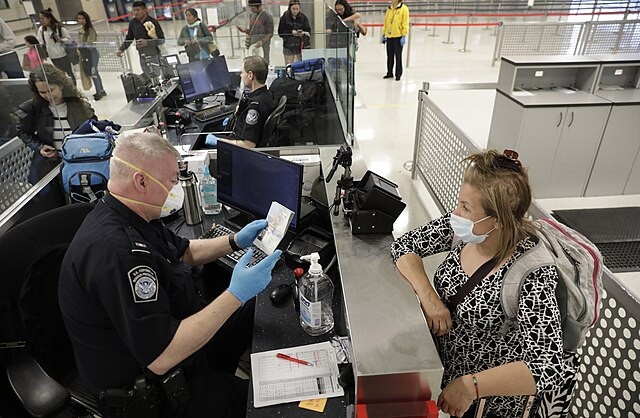The Centers for Disease Control and Prevention has confirmed multiple cases of the new COVID-19 variant NB.1.8.1 in the United States, a strain linked to a sharp surge in infections across China and parts of Asia. The variant, a descendant of the JN.1 lineage, has become dominant in China and is now appearing among international travelers entering the U.S., according to data published by the CDC's testing partner, Ginkgo Bioworks.
NB.1.8.1 cases have been detected in airport screenings in California, Washington, Virginia, and the New York City area, based on records uploaded to the GISAID virus database. The tests were administered between April 22 and May 12 to passengers arriving from China, Taiwan, South Korea, France, Spain, Vietnam, and other countries. Additional cases have also been reported in states including Ohio, Rhode Island, and Hawaii, with earliest known cases in California and Washington dating back to late March.
"CDC is aware of reported cases of COVID-19 NB.1.8.1 in China and is in regular contact with international partners," a CDC spokesperson said. However, the agency noted that there have been fewer than 20 sequences detected in the U.S. so far, which is below the threshold for inclusion in its official COVID Data Tracker dashboard.
Hong Kong has experienced the highest levels of COVID-related emergency room visits and hospitalizations in at least a year, prompting health authorities to advise mask-wearing in crowded settings. Taiwan also reported rising emergency admissions, deaths, and increased demand for antivirals and vaccines. Preliminary findings suggest NB.1.8.1 may be more transmissible due to stronger binding to human cells, although it does not appear more severe or immune-evasive than previous variants.
Darin Edwards, who leads Moderna's COVID-19 program, told the FDA's vaccine advisory committee that "the LP.8.1 vaccine has the highest titers against LP.8.1, which is dominant in the U.S. and many other regions and cross-neutralizes other currently circulating variants, including NB.1.8.1."
The FDA panel on Thursday discussed potential updates to vaccines for the fall season. While the committee unanimously agreed to target a JN.1 variant, opinions diverged on whether to stick with last year's formulation or adopt new candidates such as LP.8.1. Jerry Weir, director of the FDA's Division of Viral Products, said, "The overwhelming odds are that what does come and predominate in the next few months... will come from something that's circulating now."
CDC virologist Natalie Thornburg said the virus's evolution has entered a more stable phase. "I do think after five years now, we are seeing very distinct patterns that [are] falling into a more predictable pattern," she said. Nevertheless, she added, "I'm not saying that the virus will not shift again in the immediate future."
As of May 23, emergency room visits for COVID-19, influenza, and RSV remain very low nationwide. CDC projections expect this trend to continue over the next two weeks.





